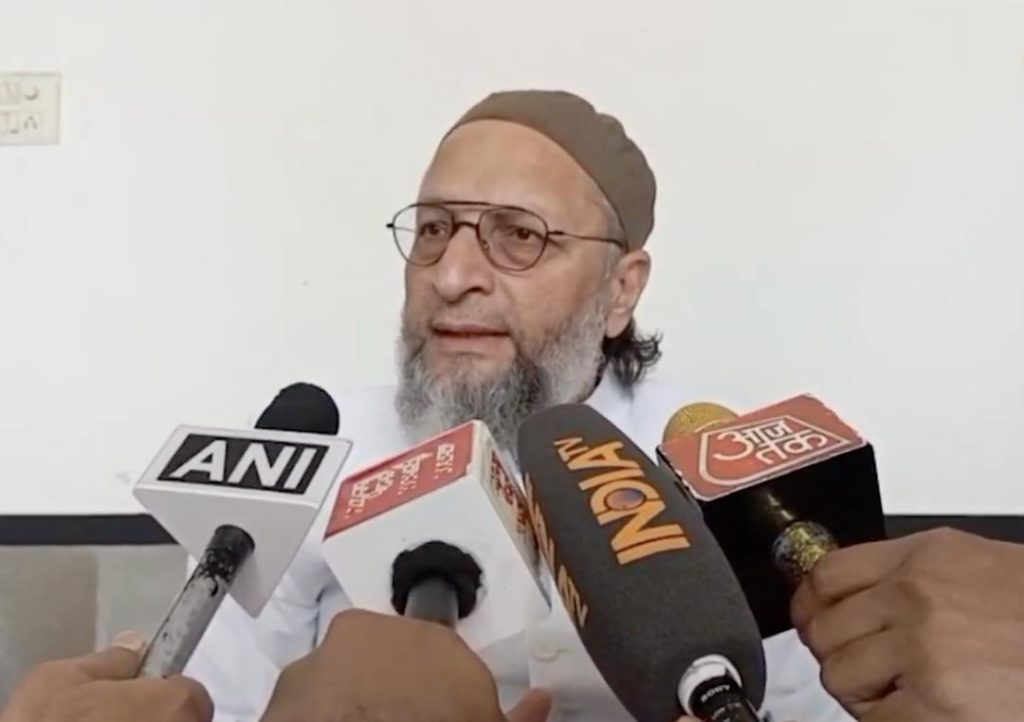
Arrest 4-5 ministers & govt is gone: Owaisi on PM-CM removal Bills
The proposed Constitution (130th) Amendment Bill has sparked a heated debate in the country, with many questioning the validity and implications of the bill. One of the most vocal critics of the bill is AIMIM chief Asaduddin Owaisi, who has expressed grave concerns over the bill’s provisions. In a recent statement, Owaisi said that if the bill is passed, the government could be toppled by simply arresting four to five ministers.
The bill, which is currently pending in Parliament, provides for the removal of the Prime Minister, Chief Ministers, and ministers who are arrested for at least 30 days. According to Owaisi, this provision is a threat to the country’s democracy and could lead to the misuse of power.
“Just arrest four-five ministers, and government is gone,” Owaisi said, highlighting the potential consequences of the bill. “This proposed bill is saying that the President can remove the Prime Minister. What is this?”
Owaisi’s concerns are not unfounded. The bill, if passed, would give the President the power to remove the Prime Minister and other ministers without needing to follow due process. This could lead to a situation where the President, who is the ceremonial head of the state, has more power than the Prime Minister, who is the head of the government.
The bill’s provisions have also raised questions about the role of the Prime Minister and the Chief Ministers in the country’s governance. According to the bill, if a Prime Minister or Chief Minister is arrested for at least 30 days, the President can remove them from office. This raises questions about the accountability of these leaders and whether they are above the law.
Owaisi has also questioned the timing of the bill, which comes at a time when the country is already facing political uncertainty. The bill has been introduced in Parliament at a time when the government is facing opposition from various quarters, and there are concerns about the stability of the government.
The bill has also been criticized for its potential impact on the country’s federal structure. According to some experts, the bill could lead to a centralized power structure, where the President has more control over the government than the Prime Minister.
The Constitution (130th) Amendment Bill is not the only bill that has raised concerns about the country’s democracy. There have been several other bills that have been introduced in Parliament, which have raised questions about the government’s intentions and the impact on the country’s governance.
In recent years, there have been several instances where the government has introduced bills that have raised concerns about the country’s democracy. For example, the Aadhaar Act, which was introduced in 2016, raised concerns about the privacy and security of citizens’ data. Similarly, the Citizenship Amendment Act, which was passed in 2019, raised concerns about the rights of minority communities.
The proposed Constitution (130th) Amendment Bill is just the latest in a series of bills that have raised concerns about the country’s democracy. The bill’s provisions, if passed, could have far-reaching implications for the country’s governance and the accountability of its leaders.
In conclusion, the proposed Constitution (130th) Amendment Bill has sparked a heated debate in the country, with many questioning its validity and implications. The bill’s provisions, if passed, could have far-reaching consequences for the country’s democracy and the accountability of its leaders. As the bill moves forward, it is essential that citizens remain vigilant and demand transparency and accountability from their leaders.






